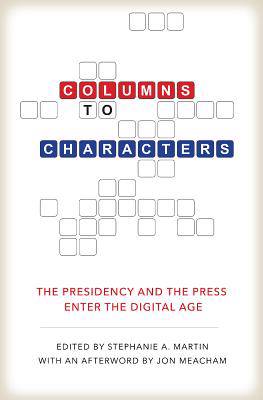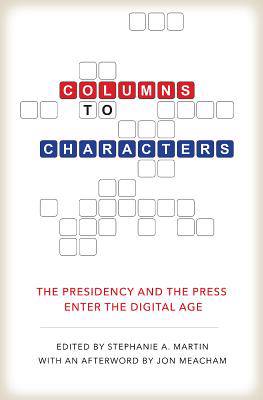
- Afhalen na 1 uur in een winkel met voorraad
- Gratis thuislevering in België vanaf € 30
- Ruim aanbod met 7 miljoen producten
- Afhalen na 1 uur in een winkel met voorraad
- Gratis thuislevering in België vanaf € 30
- Ruim aanbod met 7 miljoen producten
Columns to Characters
The Presidency and the Press Enter the Digital Age
Peter Baker, Martha Joynt Kumar, Rita Kirk, David Demarest, Roderick P Hart, Thomas M. DeFrank, Stephen A Smith, Tony Pedersen, Robert W MongOmschrijving
The transformation of political communication...
The relationship between the presidency and the press has transformed--seemingly overnight--from one where reports and columns were filed, edited, and deliberated for hours before publication into a brave new world where texts, tweets, and sound bites race from composition to release within a matter of seconds. This change, which has ultimately made political journalism both more open and more difficult, brings about many questions, but perhaps the two most important are these: Are the hard questions still being asked? Are they still being answered?
In Columns to Characters: The Presidency and the Press Enter the Digital Age, Stephanie A. Martin and top scholars and journalists offer a fresh perspective on how the evolution of technology affects the way presidents interact with the public. From Bill Clinton's saxophone playing on the Arsenio Hall Show to Barack Obama's skillful use of YouTube, Twitter, and Reddit (to name just a few platforms) as the first "social media president," political communication appears to reflect the increasing fragmentation of the American public. In an era where a televised address from the Oval Office is no longer guaranteed to draw a nationwide audience, presidents are communicating their messages through ever more focused channels. Likewise, traditional journalists now find themselves "publishing" in ways perhaps not even conceived of in journalism school.
The essays here, accessible to scholars and practitioners alike, explore these implications in a variety of real-world circumstances: the "narcotizing" numbness of information overload and voter apathy; the concerns over privacy, security, and civil liberties; new methods of running political campaigns and mobilizing support for programs; and a future "post-rhetorical presidency" in which the press is all but irrelevant. Each section of the book concludes with a "reality check," a short reflection by a working journalist (or, in one case, a former White House insider) on the presidential beat.
As Pulitzer Prize-winner Jon Meacham concludes in an insightful afterword, "to be sure, from Jefferson vs. Hamilton forward, American political culture has been forever factionalized. The difference now is that presidential leadership must be exercised in an environment in which the factions never rest."
Specificaties
Betrokkenen
- Auteur(s):
- Uitgeverij:
Inhoud
- Aantal bladzijden:
- 294
- Taal:
- Engels
- Reeks:
Eigenschappen
- Productcode (EAN):
- 9781623495626
- Verschijningsdatum:
- 1/11/2017
- Uitvoering:
- Hardcover
- Formaat:
- Genaaid
- Afmetingen:
- 163 mm x 236 mm
- Gewicht:
- 589 g

Alleen bij Standaard Boekhandel
Beoordelingen
We publiceren alleen reviews die voldoen aan de voorwaarden voor reviews. Bekijk onze voorwaarden voor reviews.









